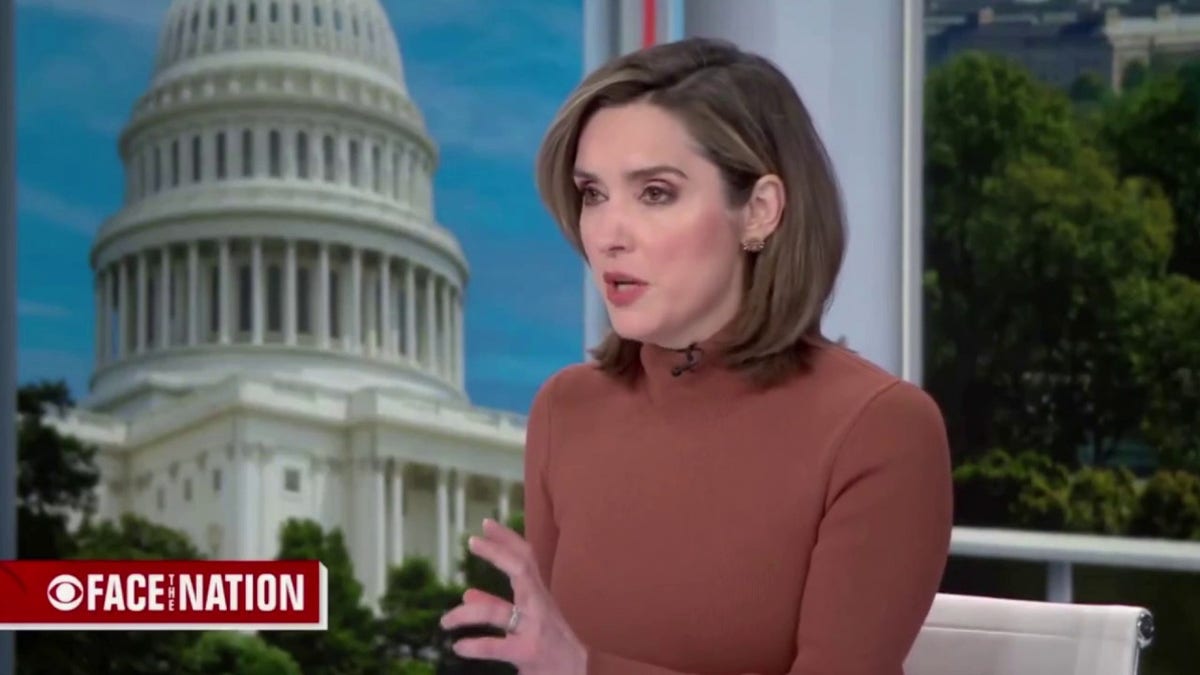In the U.S., politics are once again stirred up by a heated argument between Vice President-elect JD Vance and CBS News reporter Margaret Brennan. Brennan asked Secretary of State Marco Rubio about Vance’s words about censorship and free speech in Germany, which is what the debate is mostly about. Brennan seemed to make a connection between free speech and the Holocaust, which made Vance and his supporters very angry.
Since the debate involves touchy historical and political topics, it makes us wonder: Did Brennan go too far with her case, or did Vance get it wrong? Let’s break it down.

Margaret Brennan’s Controversial Questioning
Brennan, who hosts Face the Nation, is known for asking sharp questions. She did an interview with Secretary of State Marco Rubio not long ago, though, and it got harsh criticism from JD Vance and other conservatives.
Brennan brought up Vance’s meeting with the leader of the far-right German party Alternative for Germany (AfD) during the interview and asked Rubio about Vance’s claim that censorship is Europe’s biggest threat. Brennan said that the past is important, especially when talking about free speech in a place where Nazi propaganda was very important to their rise to power.
Her exact words were:
“Well, he was standing in a country where free speech was weaponized to conduct genocide, and he met with the head of a political party that has far-right views and some historic ties to extreme groups.”
This comment quickly became the focal point of controversy.

“Crazy Exchange” was JD Vance’s answer.
Soon after Brennan’s comments aired, Vance went on X (formerly Twitter) to say how angry he was. Brennan’s case was a “crazy exchange,” and he asked if the mainstream media really thinks that free speech led directly to the Holocaust.
“This is a crazy exchange. Does the media really think the Holocaust was caused by free speech?” – JD Vance on X
Vance’s response brought to light a larger worry among conservatives: the media’s stories about free speech often portray it as a harmful tool rather than a basic right.
What Marco Rubio Had to Say About Brennan
Brennan’s way of putting things was criticized by Secretary of State Marco Rubio in the same interview, who said:
“Free speech was not used to conduct a genocide. The genocide was conducted by an authoritarian Nazi regime that happened to also be genocidal because they hated Jews and they hated minorities.”
In his answer, Rubio stressed that Nazi Germany was an authoritarian state where speech was strictly limited and not free.
What Free Speech Means in History
Brennan’s case makes it sound like unrestricted free speech helped the Nazi regime rise to power. But a lot of historians say that Nazi propaganda did well not because speech was free, but because the government shut down opinions that disagreed.
A brief historical analysis shows:
| Factor | Impact on Nazi Rise |
|---|---|
| State Propaganda | The Nazi regime tightly controlled media to spread ideology. |
| Suppression of Opposition | Critics were silenced, imprisoned, or executed. |
| Censorship of Dissent | Independent newspapers and speech were banned. |
This brings up an important counterargument: Was Nazi Germany an example of too much freedom of speech, or rather of speech being used as a tool by dictators?
Alternative for Germany (AfD) and Its Differing Views
People have said that Vance met with the far-right political group Alternative for Germany (AfD), which has ties to nationalist parties in the past. Some people see AfD as a nationalist movement that supports traditional values, while others warn that it has ties to extreme ideas.
People were even more curious about Brennan’s political allies when he brought up AfD during Vance’s speech. Some people say that talking with AfD leaders means you agree with their ideas, while others say it was just a friendly conversation.

